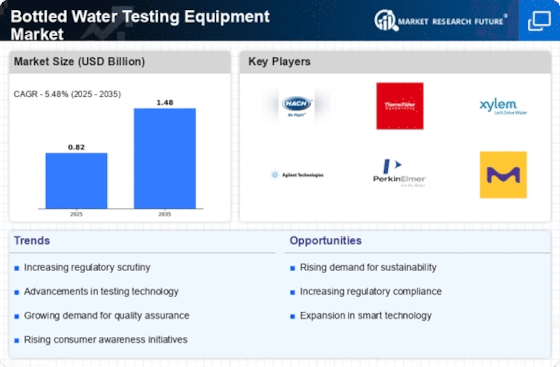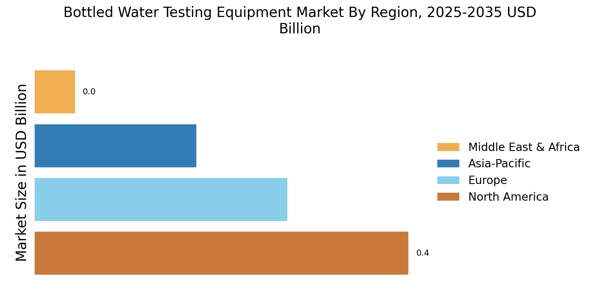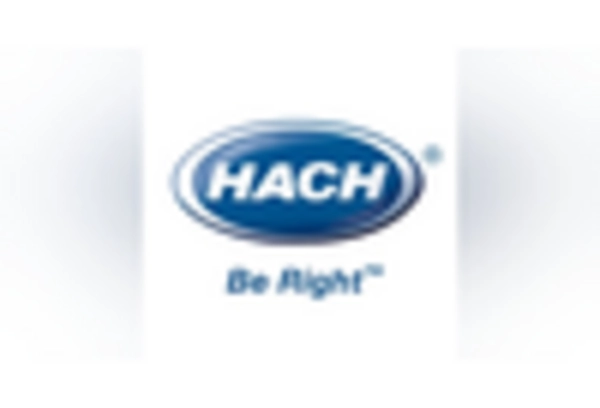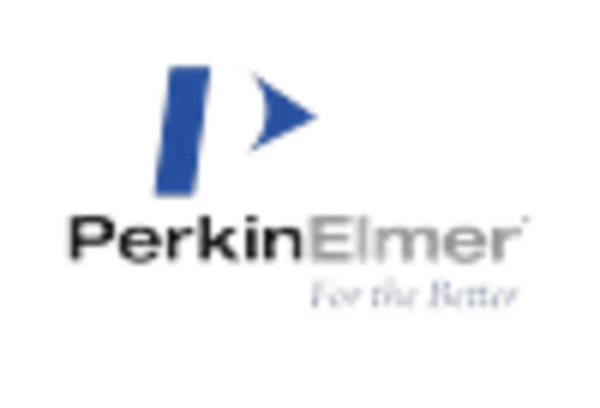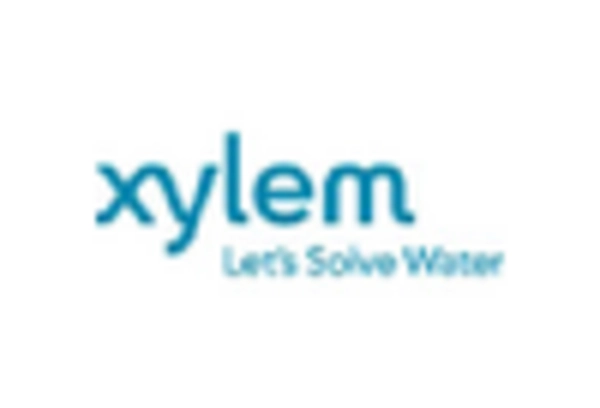Rising Health Awareness
The increasing awareness regarding health and wellness among consumers appears to be a significant driver for the Bottled Water Testing Equipment Market. As individuals become more conscious of the quality of the water they consume, the demand for reliable testing equipment intensifies. This trend is reflected in the growing preference for bottled water over sugary beverages, with the bottled water market projected to reach substantial figures in the coming years. Consequently, manufacturers are compelled to invest in advanced testing technologies to ensure product safety and quality, thereby propelling the Bottled Water Testing Equipment Market forward.
Technological Innovations
Technological advancements in testing methodologies and equipment are likely to play a crucial role in shaping the Bottled Water Testing Equipment Market. Innovations such as portable testing devices and automated analysis systems enhance the efficiency and accuracy of water quality assessments. The integration of IoT and AI technologies into testing equipment may further streamline operations, allowing for real-time monitoring and data analysis. As the industry evolves, companies that adopt these cutting-edge technologies may gain a competitive edge, thus driving growth in the Bottled Water Testing Equipment Market.
Increased Regulatory Scrutiny
The Bottled Water Testing Equipment Market is experiencing heightened regulatory scrutiny as governments and health organizations emphasize the importance of water quality. Stricter regulations regarding contaminants and safety standards necessitate the use of advanced testing equipment to comply with legal requirements. This regulatory landscape compels bottled water manufacturers to invest in reliable testing solutions, thereby fostering growth in the Bottled Water Testing Equipment Market. As compliance becomes increasingly critical, the demand for sophisticated testing equipment is expected to rise, reflecting the industry's commitment to consumer safety.
Expansion of Bottled Water Market
The expansion of the bottled water market is a pivotal driver for the Bottled Water Testing Equipment Market. As more consumers opt for bottled water due to convenience and perceived health benefits, the demand for testing equipment to ensure product safety and quality is likely to increase. Market data indicates that the bottled water segment is expected to witness significant growth, prompting manufacturers to enhance their testing capabilities. This expansion not only creates opportunities for new entrants in the Bottled Water Testing Equipment Market but also encourages existing players to innovate and improve their offerings.
Environmental Sustainability Initiatives
The growing emphasis on environmental sustainability is influencing the Bottled Water Testing Equipment Market. As consumers demand eco-friendly practices, bottled water companies are under pressure to ensure that their products meet sustainability standards. This includes not only the quality of the water but also the environmental impact of the packaging and production processes. Consequently, companies are likely to invest in testing equipment that assesses both water quality and environmental compliance. This dual focus on sustainability and quality assurance may drive innovation and growth within the Bottled Water Testing Equipment Market.


